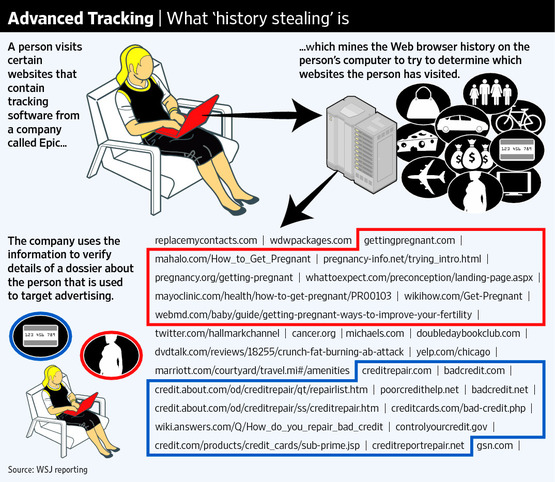The Wall Street Journal, which has been on the issue of computer privacy like Brown on Williamson, has revealed the next level of online tracking:
Latest in Web Tracking: Stealthy ‘Supercookies’
Major websites such as MSN.com and Hulu.com have been tracking people’s online activities using powerful new methods that are almost impossible for computer users to detect, new research shows.
The new techniques, which are legal, reach beyond the traditional “cookie,” a small file that websites routinely install on users’ computers to help track their activities online. Hulu and MSN were installing files known as “supercookies,” which are capable of re-creating users’ profiles after people deleted regular cookies, according to researchers at Stanford University and University of California at Berkeley.
The Journal helpfully provides this graphic:
The supercookie bakers gave the standard response they resort to in these situations: we had no idea, but we’ll stop the tracking now that you’ve detected it. (At least until the tracking geeks come up with something else we’re unaware of.)
This is serious business for marketers since, as the Journal reports, “nearly 80% of online display ads are based on tracking data.”
And it’s just going to get worse, not better. Most privacy legislation seems stalled on Capitol Hill, and the online-ad industry’s self-policing gives marketers a lot of wiggle room.
Supercookies and milking your data. Just dessert in a wired world, eh?
John R. Carroll is media analyst for NPR's Here & Now and senior news analyst for WBUR in Boston. He also writes at Campaign Outsider and It's Good to Live in a Two-Daily Town.
John R. Carroll has 305 post(s) on Sneak Adtack

1 comment
Hulubaloo Over Online Tracking | Campaign Outsider says:
Aug 19, 2011
[…] posted on Sneak ADtack. And don’t forget to vote in our excellent poll there. Advertisement […]